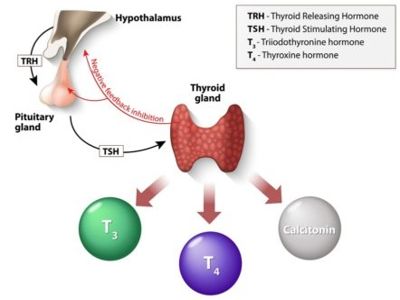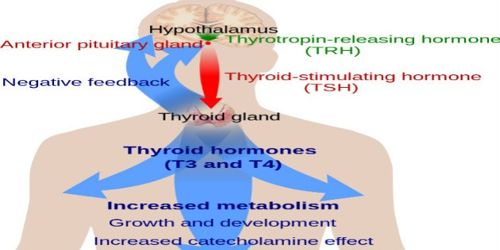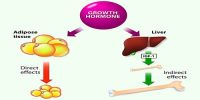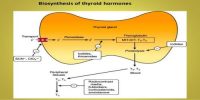Thyroid hormones are two hormones produced and released by the thyroid gland, namely triiodothyronine (T3) and thyroxine (T4). They act to increase the basal metabolic rate, affect protein synthesis, help regulate long bone growth and neural maturation, and increase the body’s sensitivity to catecholamines by permissiveness. The thyroid gland secretes from the follicular cells two significant hormones:
(a) Thyroxin (T4)-93%,
(b) Tri-iodothyronine (T3)-7%.
The thyroid gland also secretes calcitonin from parafollicular cells. They help regulate growth and the rate of chemical metabolism and are involved in the circadian rhythms that govern sleep, among other essential functions.
Related Information:
- T3 is more active than T4.
- T4 → deiodination in peripheral tissue → T3
- RT3 is inactive,
- Thyroid hormones are iodine containing amino acids.

Fig: Thyroid hormones
Iodine Metabolism
- The minimum I2 requirement of 150 μg/day in an adult.
- The normal plasma I– level is about 03 μg/dl.
- 20% I2 enters the thyroid and 80% I2 is excreted in the urine.
Na+-I– Symporter (NIS)
Thyroid cell membranes facing the capillaries contain NIS. It maintains 20-40 times greater IC conc. of I2.















